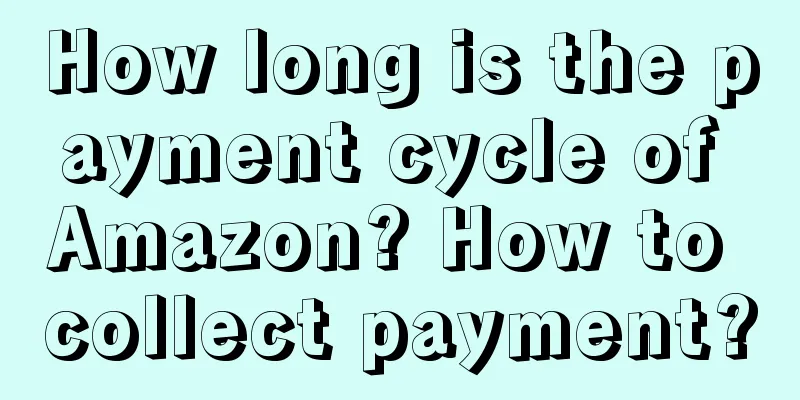Alibaba's new regulations have been fiercely criticized! A must-read for e-commerce professionals

1. Alibaba’s new regulations sparked heated discussionsRecently, a piece of news released by Qianniu Toutiao, a subsidiary of Alibaba, has attracted widespread attention and discussion among e-commerce practitioners; Here are some real comments from the message comment section, excerpted as follows:
There are more doubts and negative emotions; In addition to the questioning emotions, there are also some rational criticisms:
We will not discuss here whether it is a violation; So what exactly is the news that can attract such intense attention and discussion? It turned out that on June 26, Qianniu Toutiao, a subsidiary of Alibaba, released the "Interpretation of Tmall's Rules on Inducing Third Parties", stating that Tmall will strengthen rectification of violations of "inducing third parties". The violation of "inducing third parties" refers to publishing or pushing third-party products or information that may easily lead to transaction risks, or inducing consumers to jump to third-party websites or clients through other means. The new regulations clearly state that merchants are not allowed to publish or push third-party products or information that may cause transaction risks in any aspect of interaction with consumers, such as store pages, product details, promotion channels, Wangwang chat, live broadcast interaction, and physical packages. Strict! Really strict! Moreover, starting from July, Tmall will impose a fine of 2,000 or 20,000 yuan on merchants who violate the rules, depending on the circumstances. Merchants with particularly serious circumstances (including three violations) will be cleared out. (Picture from Qianniu Headlines) In addition to increasing the severity of the punishment, another important reason for the heated discussion this time is that the authorities have singled out [package card diversion] as a typical violation type in the "common violation types"; What is a parcel card? Package cards are a common private domain operation method, mainly used to attract users or increase user stickiness. When a user purchases a product and receives a package, the merchant will attach a card to the package. The card usually contains some additional discount information, event information, or QR code, etc., allowing users to scan and land in the merchant's own public account/WeChat and other private domain traffic pools. as follows: (Picture from Qianniu Headlines) In the example diagram of the violation type given by the official, the WeChat logo is clearly revealed, and its targeting is self-evident; Why did the ban on parcel cards cause such a strong reaction from merchants? This requires explaining a typical e-commerce scenario first! 2. Public domain traffic diversion and private domain transaction and repurchaseAfter the new regulations came out, I talked to several business friends and asked them what they thought: Merchant A, selling daily necessities:
Merchant B, doing whole house customization business:
Merchant C, early childhood education:
It can be seen that due to the increase in traffic prices and the internal circulation of homogeneous products, the profit margin of businesses in the public domain of Taobao has become smaller and smaller, and even loses money; therefore, many merchants conduct traffic diversion in the public domain and conduct transactions and repurchases in the private domain; in this way, the overall ROI can be balanced; Alternatively, the private domain itself is an indispensable part of fulfilling contracts for many businesses, such as the early childhood education business mentioned above; In such a scenario, merchants often spare no effort to accumulate private domain users, and [package cards] are often a very effective way to attract private domain users. At present, Alibaba has issued a notice to ban all parcel cards, which has caused complaints from many merchants, so it is not surprising. Behind this, it actually reflects the platform's anxiety about traffic; 3. Platform Anxiety about TrafficAs the growth of the number of Chinese netizens has peaked, the competition has shifted from competing for incremental users to competing for existing users. This is a consensus among almost everyone. In this big context, every platform wants users to stay on its platform; So it’s not just Tmall! As early as a few years ago, Douyin had issued similar regulations, deducting points from merchants who lured users to third parties, and taking measures including but not limited to public warnings, product removal/banning, and search demotion depending on the specific circumstances. Pinduoduo has also issued similar regulations: as long as merchants engage in illegal inducement behavior, they will face penalties such as increasing the store deposit (an increase of 50,000). Even if the violations occur twice or more, the merchants may face the serious consequences of having all deposits deducted and being forced to withdraw from the store. It can be said that Tmall has actually done a lot of things that e-commerce platforms have already done! 4. Tmall’s traffic defenseAs a national application, WeChat has built a complete closed-loop transaction infrastructure with its huge user base and strong social attributes. Some people prefer to shop on Taobao, some prefer to shop on JD.com, but few people do not use WeChat. Therefore, in e-commerce, whether it is Pinduoduo or JD.com, WeChat’s private domain is an unavoidable traffic black hole; This [new regulation] can be seen as Tmall’s further defense against WeChat traffic; In addition to prohibiting third parties from inducing traffic, Tmall has also made a series of upgrades and innovations in its private domain operations! At the TopTalk 2024 Tmall Super Brand Private Conference in April this year, Tmall executives repeatedly mentioned the concepts of private domain, public domain and global domain, showing their high attention to private domain operations. Tmall has made it clear that it will return real-time operational service capabilities to brands and merchants, and carry out large-scale upgrades to multiple areas within the store, including price reduction reminders, new customer coupons, promotional prices, etc. At the same time, brands can independently build store frameworks and page displays to create diverse store spaces and personalized store frameworks for thousands of people. In this upgrade, Tmall has given merchants great freedom in their private domain operations, allowing them to set prices and make decisions freely. Brands can independently define different membership categories and set different membership benefits to build closer customer relationships and loyalty. Overall, Alibaba’s traffic defense policy can keep more traffic on its own platform. At the same time, the upgraded private domain operation policies and tools can help brands and merchants better operate their own member users. The two complement each other! 5. Brands in the vortexHowever, for any brand, there will be more or less path dependence problems. After the policy of [Tmall prohibits inducing third parties] was officially implemented on July 1, a large part of the links leading to private domains were cut off. The model of [public domain investment-private domain transaction] will definitely encounter considerable challenges. In the face of new policies, while doing a good job of operating existing private domain users, brands can continue to expand their private domain traffic pool through fission and other forms; At the same time, we must actively respond to the platform's policies and embrace change, as bonus periods often occur during periods of change; After all, a single brand has no say in facing the platform, and in the current market environment, it is impossible to form a unified merchant alliance to bargain with the platform! |
<<: Say goodbye to your “low-energy” self and transform from a “startup dog” to a “startup mad dog”!
>>: I work as an MCN in the Middle East and earn $100,000 a month
Recommend
Persuasive marketing is becoming the traffic code of Xiaohongshu
Recently, "advisory cultural tourism" ha...
Will Amazon's express delivery service be closed during the Spring Festival? How can merchants prepare?
There are many rules that need to be followed on t...
What are the consequences of cross-border e-commerce infringement? How to avoid infringement?
With the advancement of globalization and the rapi...
Crisis management ≠ crisis public relations, enterprises should build a three-dimensional and comprehensive crisis management system
This article specifically analyzes the difference ...
21 TikTok Video Marketing Tips for Overseas Marketing
How to conduct TikTok marketing without any inspir...
What is the Amazon Logistics New Product Warehouse Promotion Program? What does it include?
Amazon Logistics' New Product Warehouse Promot...
The “sinking road” of big-name beauty brands: plot accounts + routine live broadcasts = sales growth
Nowadays, more and more live broadcasting styles a...
Dong Jie's Buddhist style has become popular, and Xiaohongshu has learned to be fierce
After forming a unique content ecosystem, monetiza...
Recognizing User Value and Transactions [Final Chapter]
The author of this article discusses user value fr...
In the AIGC era, how to strike a balance and measure?
Introduction: Using AI to make videos? With the pr...
What exactly is a skit?
Short dramas are in the limelight, but the rapidly...
What are the rules for scoring product information on DHgate? What does it include?
In order to improve the quality of product informa...
How do cross-border e-commerce companies select products to avoid returns? How are they charged?
After opening a store on a cross-border e-commerce...
What is Amazon Prime for? Is it necessary to join?
Amazon Prime is a model that the platform will hav...
Brand Marketing Guide
What aspects should be taken into consideration to...









